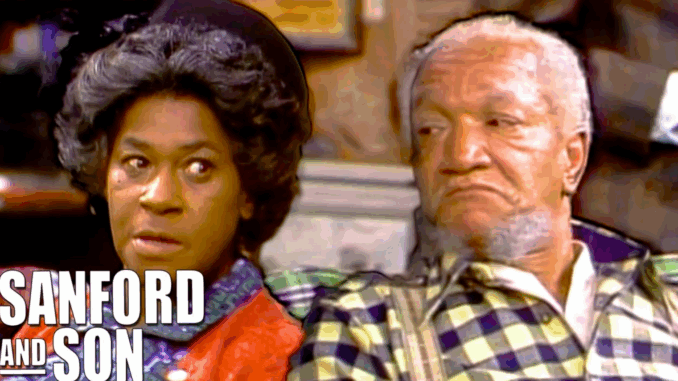
In the often-overlooked episode “Fred’s Treasure Garden,” the show delivers something more lasting than laughs: a raw meditation on poverty, community, and pride.
Fred decides to plant a garden in his junkyard—not because he loves vegetables, but because he wants beauty in a place society deems worthless. His effort is met with ridicule, including from Lamont, but the episode doesn’t treat Fred’s dream as foolish. It treats it as heroic.
In a single half-hour, Sanford and Son exposes what many sitcoms were afraid to admit: being poor in America doesn’t mean giving up your right to dream, to build, to grow something that matters. Fred’s garden, sprouting from rusted soil and surrounded by scrap metal, becomes a metaphor for Black resilience.
By the end of the episode, when Lamont finally helps his father tend to the tiny plants, we’re left with something rare in 70s television—a Black father and son finding dignity not through wealth, but through shared labor and purpose. The junkyard is still a junkyard. But Fred Sanford is a king in it, and his garden is his crown.